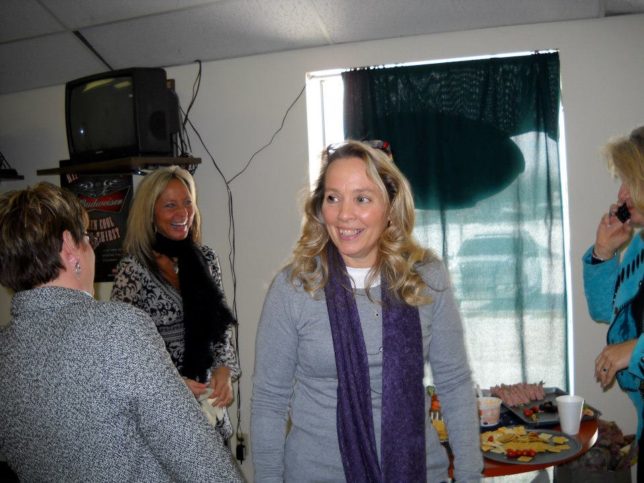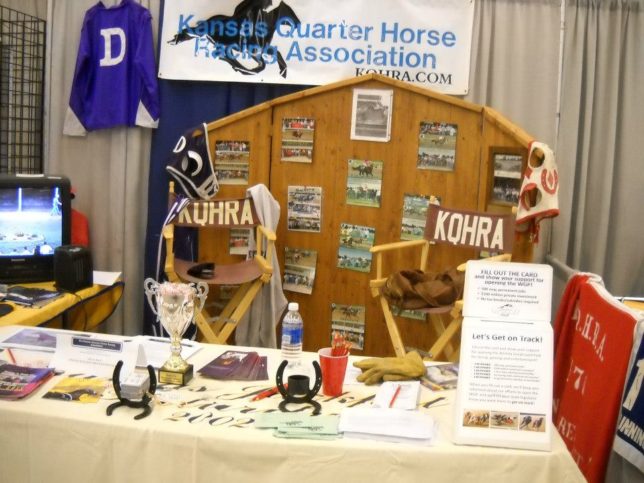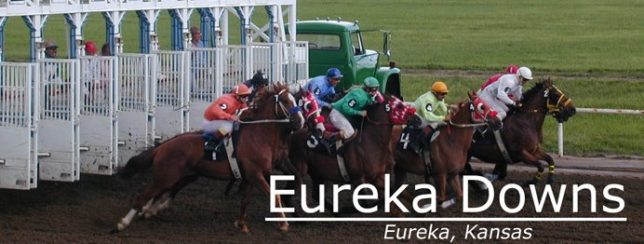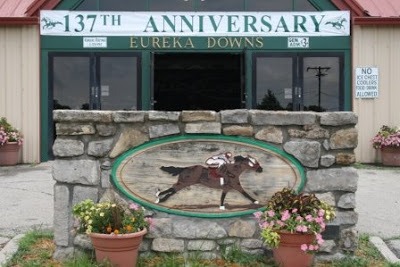“I’ll bet you two bits my horse can out run your horse from here to that tree.”
Horse racing has been around ever since horses became the mode of transportation.

Whether cowboy against cowboy in the pasture, seven-year-old boy against a ten-year-old girl riding their family horses to school in days gone by, or in big dollar sanctioned races around a circle track, horse racing is the sport of kings and most everyone else, too.
Never has that fact changed, and today somebody somewhere with a horse will challenge another to see whose horse is the fastest.
What has changed is that there’s no longer horse and dog racing on official racetracks in Kansas.
That’s a big loss to tax rolls for the economically challenged state, let alone the state’s horse and dog industries, and those who love the thrill of the racers coming down the straight-away to the finish line.
Horse racing is big business, generating a world-wide market of about $200 billion annually.
“Kansas racetracks closed in 2008 due to the fact they are not economically viable at the current 40 percent tax rate, losing Kansas thousands of jobs and millions in economic impact,” according to Rita Osborn, Madison school teacher and cowgirl with close ties to Eureka Downs, the closed racehorse track at Eureka.

Osborn is also affiliated with The Greater Kansas Racing Alliance. “This is a group of farmers, ranchers, Kansas businesses and trade associations who believe in Kansas agriculture, Kansas communities and in ensuring Kansans have the opportunity to excel in a free market economy.
“We have come together to support pari-mutuel racing tracks in Kansas through an imitative called the Race for Kansas supporting legislation that will create 4,475 jobs for Kansans, while supporting Kansas farms, businesses, Kansas tourism and helping solve the state’s budget,” Osborn said..
Since legislation approved in 2007, Kansas racetracks are taxed at a higher rate than other gaming businesses in Kansas. “Privately operated, state-owned casinos are taxed at the rate of 22 percent, while Kansas racetracks are taxed at 40 percent,” Osborn said.
“All of Kansas’ racetracks closed in 2008 due to the fact they are not economically viable at that tax rate, and Kansas lost thousands of jobs and millions in economic impact,” Osborn said.
Through leadership of the Greater Kansas Racing Alliance and its Race for Kansas initiative, the state has the opportunity to regain these jobs and dollars with legislation currently in the House of Representatives (HB 2537) that would allow Kansas racetracks to once again be economically viable just as the state-owned casinos are.
According to an economic impact study by Dr. Arthur P. Hall, the four racetracks in Kansas , The Woodlands in Kansas City; Wichita Greyhound Park in Wichita; Camptown Racetrack in Frontenac; and Eureka Downs, would create approximately 4,475 jobs based on economic analysis.
Kansans who work at racetracks and to support them would generate an estimated $23 million in income, sales and personal property taxes for state and local units of government annually.
In addition, it is estimated that racetrack owners will spend approximately $160 million to upgrade the current facilities; dollars spent in Kansas on materials, supplies, labor and services.
On top of this, the racetracks still must pay their fair share, 22 percent of earnings which will generate several million additional dollars in tax revenue each year.
The legislation was introduced by three members of the Kansas House of Representatives, Rep. John Barker of Abilene, chairman of the Judiciary Committee; Rep. Adam Lusker of Frontenac and Rep. Larry Hibbard of Toronto.
All three of the representatives agree that the sooner this legislation is passed and signed by Governor Sam Brownback, the sooner Kansas racetracks can be renovated, bringing countless construction jobs to Kansas, and the sooner each track can begin operations to generate full-time Kansas jobs and revenue.
Osborn has seen the adverse impact to Eureka and the surrounding areas since Eureka Downs, a facility in existence for more than 100 years, closed several years ago. “This legislation which would allow for Eureka Downs to operate once again, would be enormous for the town and for Kansas,” Osborn said.
Proponents of Race for Kansas including horse and dog racing supporters from a wide part of the state gathered with Dr. Hall when he reviewed the economic impact of pari-mutuel racing during an informational hearing last Wednesday, March 2, at the Kansas Statehouse. Details of that session are to be available soon on the Race for Kansas web site.
Several states immediately surrounding Kansas allow pari-mutuel wagering and electronic game at tracks. “Iowa and Oklahoma have several racetracks that draw thousands of visitors each year. In horse racing, the animal athletes are awarded a larger purse if they win a race in their home state,” Osborn noted.
Since Kansas’ last race track closed 10 years ago, many of Kansas’ sires and broodmares have been relocated to Iowa and Oklahoma taking with them, the state tax revenue dollars from the racing and related industries.
Greyhounds, including many from Kansas, are racing in 18 other states across the U.S. In 2012, Oklahoma injected more than $491 million dollars into its state’s economy due to racing. Oklahoma is home to more than 14,000 horses dedicated to racing that live on 800 farms across the state.
The proposed legislation ensures compliance with existing casinos’ contracts with Kansas.
Details can be found at www.raceforkansas.com.

